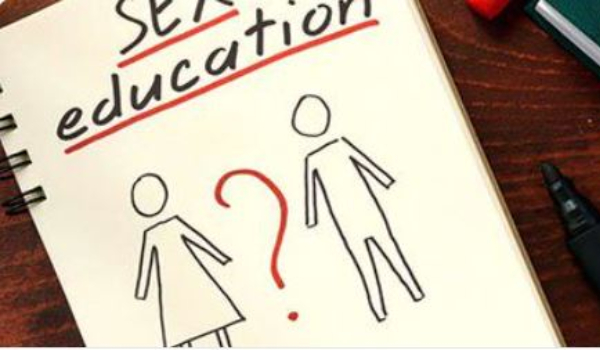
“Human beings are a complex and multi-dimensional species. We have biological, physical, mental, emotional, social and spiritual selves, all integrated into one person. We are also blessed with a sexual self, which is not an isolated identity, but intertwined with the rest of our ‘selves’.
Somehow, however, sexuality is often treated as some unfortunate side effect of being human – something to fear, something never to speak of except in hushed tones, something everyone is supposed to possess, but never acknowledge.
“Yet sexuality is all around us. What is one indicator of this? We are a country [Kenya] of approximately 50 million people, with each woman now having an average of 3.9 children in her lifetime. We may not want to talk about it, but numbers don’t lie: sex is happening, has always happened, and is here to stay.
Human design
“Nevertheless, our society remains very uncomfortable with this notion that sexuality is part of the human design. This discomfort has led to a skewed education in our schools, where, if it is ever mentioned, sexuality is mostly about biological functions, couched in cautionary tales and delivered with as little information as possible for fear that it may ignite sexual behaviour. We have conflated sexuality with the more narrow definition of sexual intercourse, and it terrifies us.
“This fear on the part of adults is understandable. No parent wants to imagine that their teenagers are even contemplating the idea of sex. For the most part, adults instinctively want to protect young people, allowing them to enjoy their youthful frivolity and delay all the complexities of adulthood for as long as possible.
“The fear is understandable, but it is not excusable. Sexuality cannot be wished away by ignoring it, and this perpetual ignorance has led to many negative outcomes such as alarming rates of teenage pregnancy, growing HIV and STI incidence among young people, unsafe abortion, and an unhealthy sense of shame around sexuality that lasts long after adolescence is over.
If we don’t want to engage young people in conversations about sexuality, we have to ask ourselves: when is the right time to have the conversation?
“Maturity is not a one-time event; it is a process. The longer we delay providing age-appropriate, evidence-based information to young people, the more likely they will mature into adults who don’t have a clue about this natural part of their lives. Or worse – adults who have an unhealthy relationship with this part of themselves, and who are then expected to form healthy, intimate relationships with other adults. We could continue down this path even further – these adults will then pass on their hang-ups and discomfort about sex to the next generation, and the vicious cycle continues.
Education for all
“If this sounds familiar, it is because it describes the society we have today. Parents and other concerned adults consider sexuality and sex such a taboo to discuss that, according to many studies, teenagers have no choice but to look to other (equally clueless) teens, hyper-sexualised media or the hazy maze that is the internet, for information.
“Think back through your own life – how did you learn about the changes of puberty, the onset of menstruation, the butterflies of first love? Was it a positive experience? If not, what would have made it a more positive experience? Perhaps having a trusted adult that you could pose questions to? Perhaps a class that prepared you for the journey into adulthood?
“Just like maturity, adulthood is also not a fixed age. Long after ages 18 or 21, we continue to evolve, continuously learning about ourselves and how to relate to others. By this logic, therefore, sexuality education is not just for young people, but for everyone, always.
“It is commonly referred to as CSE: comprehensive sexuality education. I propose we also call it Continuous Sexuality Education, and provide relevant information to everyone over the course of their lifetime. This will enable us all, in adolescence, adulthood, singlehood, coupledom, disability, parenthood, menopause and more, to make healthy, informed choices about our sexual lives; and over time become more well-rounded, integrated beings – just as designed.”
FULL ARTICLE: The Nation, Blog by Naisola Likimani, 25 December 2019 ; VISUAL: @NaisolaL



